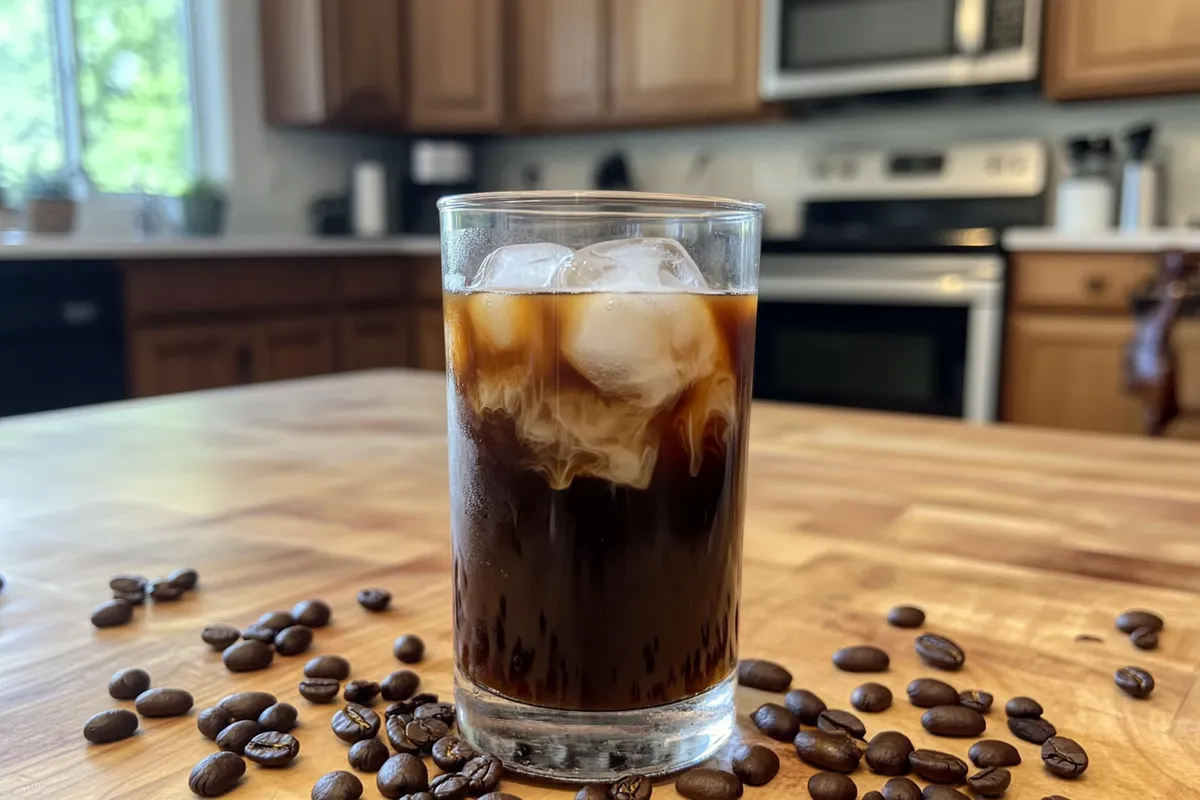Introduction
Is There a Cold Brew Decaf Coffee? Cold brew coffee has gained widespread popularity for its smooth, low-acid flavor, but what if you want to enjoy this trendy drink without the caffeine? Cold brew decaf coffee is the perfect solution for those who love coffee’s bold taste but prefer to skip the caffeine.
In this article, we’ll explore the world of cold brew decaf coffee. From understanding the appeal of cold brew to mastering the art of making the perfect decaf cup, we’ll cover everything you need to know. Whether you’re a coffee aficionado or just curious, this guide is your ultimate resource.
The Appeal of Cold Brew Coffee
Smoothness and Low Acidity
Cold brew coffee is revered for its silky-smooth texture and naturally low acidity, making it a perfect choice for those with sensitive stomachs. Unlike traditional brewing methods, which use hot water to extract flavor, cold brew relies on time and cold water to draw out the beans’ natural sweetness. This process results in a balanced, mellow taste without the bitterness often associated with hot-brewed coffee.
For many, the gentle acidity of cold brew enhances its flavor profile, allowing the subtler notes of the coffee to shine. It’s a taste experience that keeps people coming back for more.
Convenience and Versatility
One of the standout features of cold brew is its convenience. You can prepare a batch ahead of time and store it in the fridge for up to two weeks. This makes it a go-to option for busy mornings or afternoon pick-me-ups. Plus, it’s incredibly versatile—you can drink it black, mix it with milk, or even turn it into a sweet treat with syrups and ice cream.
For those seeking caffeine-free indulgence, cold brew decaf coffee offers the same flexibility. Whether you prefer it straight or dressed up, decaf cold brew fits seamlessly into your routine.
Health Benefits and Decaf Compatibility
Cold brew isn’t just a tasty treat—it’s also touted for its potential health benefits. Thanks to its low acidity, it may be easier on your teeth and digestive system compared to regular hot coffee. Decaf versions take this one step further by eliminating caffeine, which can contribute to jitters, increased heart rate, and sleep disruption.
If you’re sensitive to caffeine or simply trying to cut back, cold brew decaf coffee offers a guilt-free way to savor the joys of coffee. It’s a win-win for your taste buds and your well-being!
Decaf Coffee and the Cold Brew Process
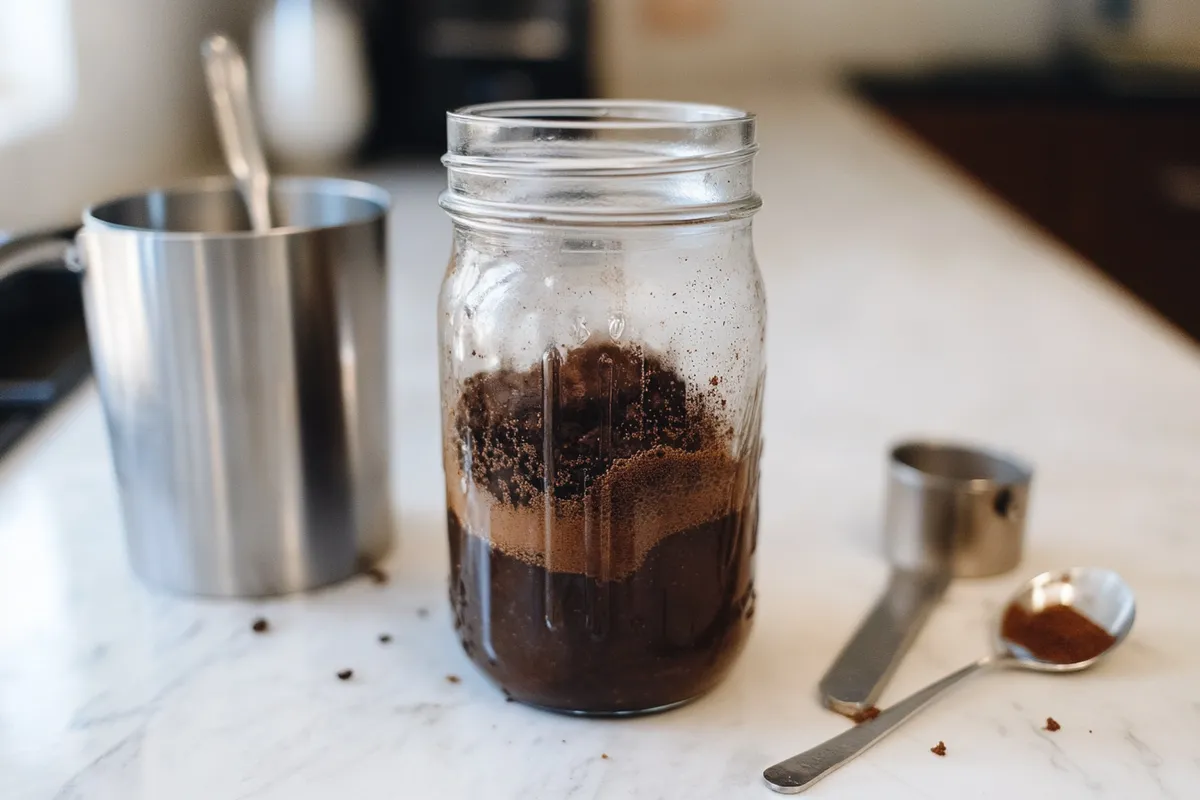
How Decaf Coffee is Made
Decaf coffee begins its journey just like regular coffee but undergoes an additional process to remove most of the caffeine. Popular methods include the Swiss Water Process and the CO2 Process. These approaches are favored because they preserve the beans’ flavor while removing up to 99.9% of caffeine.
The Swiss Water Process, for example, relies on soaking green coffee beans in hot water to extract caffeine. It uses a carbon filter to separate the caffeine, ensuring the beans retain their original taste. Similarly, the CO2 Process uses liquid carbon dioxide to remove caffeine selectively, leaving behind the rich oils that define the coffee’s flavor.
If you’ve ever asked, “Is there a cold brew decaf coffee?” you’ll be glad to know these decaffeination methods make it possible to enjoy caffeine-free options that don’t compromise on taste.
Decaf Coffee’s Flavor Profile
One common concern about decaf coffee is whether it can match the robust flavor of regular coffee. Thanks to advancements in decaffeination, the gap has narrowed significantly. Today’s decaf coffee offers a full-bodied experience, with many options boasting smooth, nutty, and chocolatey notes.
However, it’s worth noting that the brewing method also plays a crucial role in flavor. Cold brewing, for instance, enhances the natural sweetness of decaf coffee while minimizing bitterness. This makes cold brew a fantastic choice for those who want to enjoy the depth of coffee flavor without caffeine’s effects.
Challenges of Cold Brewing Decaf
Brewing decaf coffee as a cold brew isn’t without its challenges. Decaf beans can be less forgiving than their caffeinated counterparts because the decaffeination process sometimes alters the bean’s natural structure. This may require adjustments to brewing time or grind size to achieve optimal results.
To overcome these challenges, start with high-quality decaf beans processed using water-based methods. Experiment with grind size and steeping time to find what works best. With a little trial and error, you’ll be rewarded with a refreshing, caffeine-free cold brew that tastes just as good as the real thing.
For more ideas and tips on crafting beverages, you might find our decaf cold brew coffee guide helpful!
Options for Cold Brew Decaf Coffee
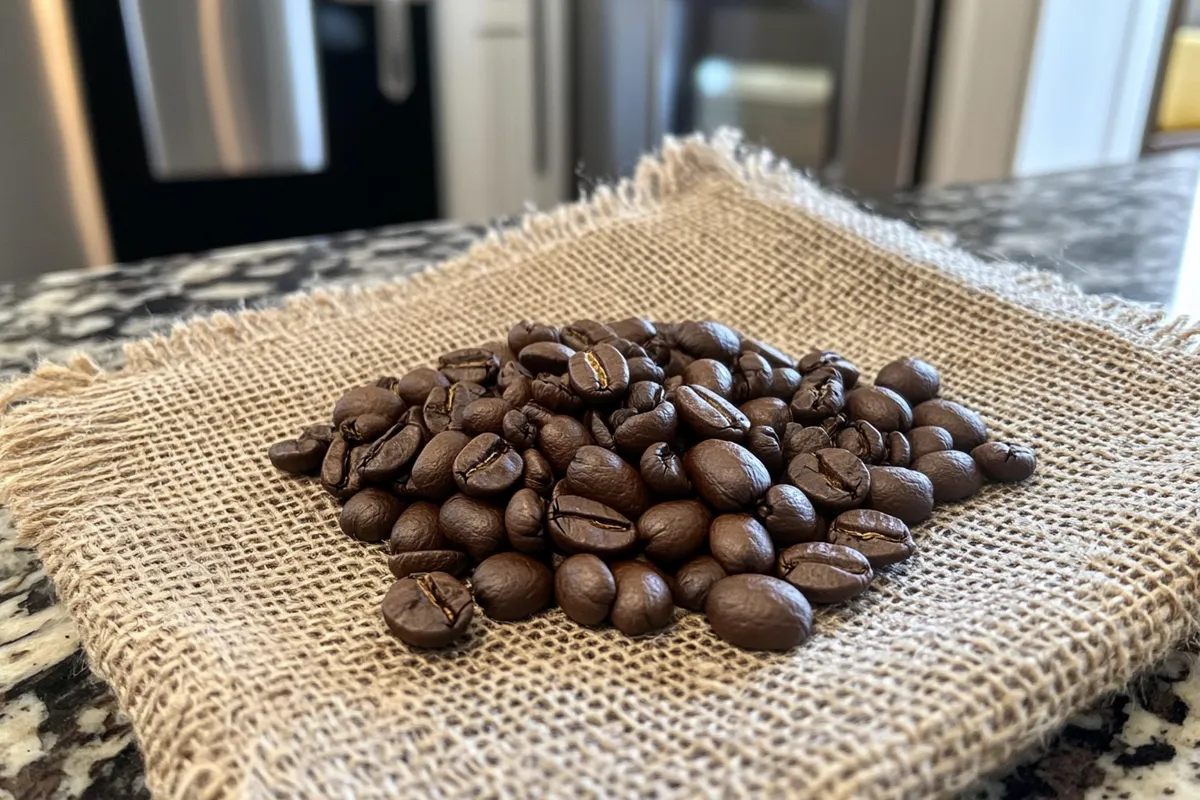
Pre-Made Cold Brew Decaf
For those who prefer convenience, pre-made cold brew decaf coffee is an excellent option. Many coffee brands now offer ready-to-drink decaf cold brew, ensuring you can enjoy a refreshing, caffeine-free beverage without the hassle of brewing at home.
Popular brands like Stumptown Coffee Roasters and Trader Joe’s have introduced this coffee with options that cater to a variety of taste preferences. These products often come in single-serve bottles or cartons, making them perfect for on-the-go consumption. Additionally, the flavor profiles of pre-made cold brews are carefully crafted to maintain a rich, smooth taste.
If you’re curious to learn more about making your beverages extra special, check out this decaf cold brew coffee guide for great tips and tricks!
DIY Cold Brew Decaf: Making It Yourself
If you love experimenting in the kitchen, making your own decaf cold brew is both rewarding and cost-effective. Start by selecting high-quality decaf beans that suit your flavor preferences. Medium and dark roasts typically produce the boldest and smoothest cold brew.
Here’s a simple recipe to get started:
- Coarsely grind 1 cup of decaf coffee beans.
- Add the grounds to a large jar or pitcher and pour in 4 cups of cold water.
- Stir gently, cover, and refrigerate for 12–24 hours.
- Strain the mixture through a fine-mesh sieve or cheesecloth to separate the liquid from the grounds.
Your homemade cold brew concentrate is ready to enjoy! Dilute it with water or milk to your preferred strength, then serve over ice for a refreshing treat.
Top Decaf Beans for Cold Brew
Choosing the right beans is crucial for a flavorful cold brew. Brands like Stone Street Coffee Company and Kicking Horse Coffee offer premium decaf beans ideal for cold brewing. Look for labels that mention low acidity, as this enhances the smoothness of your brew.
For those asking, “Is there a cold brew decaf coffee?”, the answer is a definitive yes, with options ranging from pre-made to homemade, and beans designed specifically for cold brewing. Explore and find what works best for your taste!
For even more creative drink recipes, consider browsing the recipe archives on Recipes Preparation. You might discover your next favorite beverage!
Tips for Perfect Cold Brew Decaf
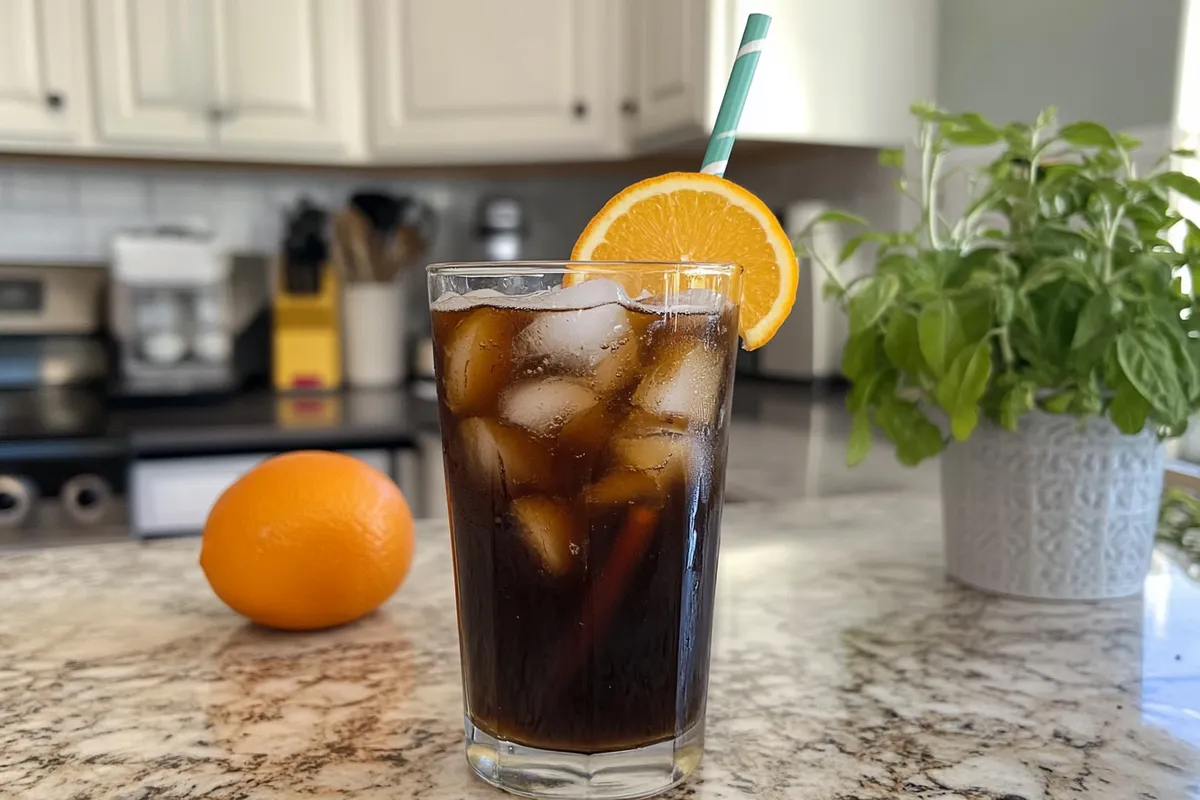
Selecting the Right Beans
When making cold brew decaf coffee, the beans you choose can make all the difference. Not all decaf coffee beans are created equal, so look for ones labeled as low-acidity or crafted for cold brewing. Beans processed using the Swiss Water Method or CO2 Process tend to retain more flavor, making them ideal for cold brew.
For a well-rounded flavor, opt for medium or dark roasts, as they typically produce a bolder, smoother cold brew. If you’ve ever wondered, “Is there a cold brew decaf coffee?” rest assured—plenty of options are available online or in specialty stores. Brands like Stone Street and Kicking Horse are excellent choices for beginners and enthusiasts alike.
Perfecting the Brewing Process
Brewing the perfect cup of decaf cold brew is all about patience and precision. Start by using a coarser grind, as fine grinds can make the brew murky and over-extracted. The ideal ratio is one cup of coffee grounds to four cups of water, but feel free to adjust depending on your taste preferences.
Combine the grounds and water in a jar or pitcher, then stir gently to ensure even saturation. Cover the container and let it steep in the fridge for 12–24 hours. The longer it steeps, the stronger the flavor. After steeping, strain the mixture through a fine-mesh sieve or cheesecloth to remove the grounds, leaving you with a silky-smooth concentrate.
Serving and Storing Cold Brew Decaf
Once your cold brew decaf is ready, it’s time to enjoy it. You can drink it straight over ice, dilute it with water or milk, or even sweeten it with syrups or honey. For a fancier twist, try adding a splash of vanilla or caramel syrup.
Store the concentrate in an airtight container in the fridge, where it will stay fresh for up to two weeks. Just remember to shake the container before serving, as natural oils and sediment may settle over time.
FAQs
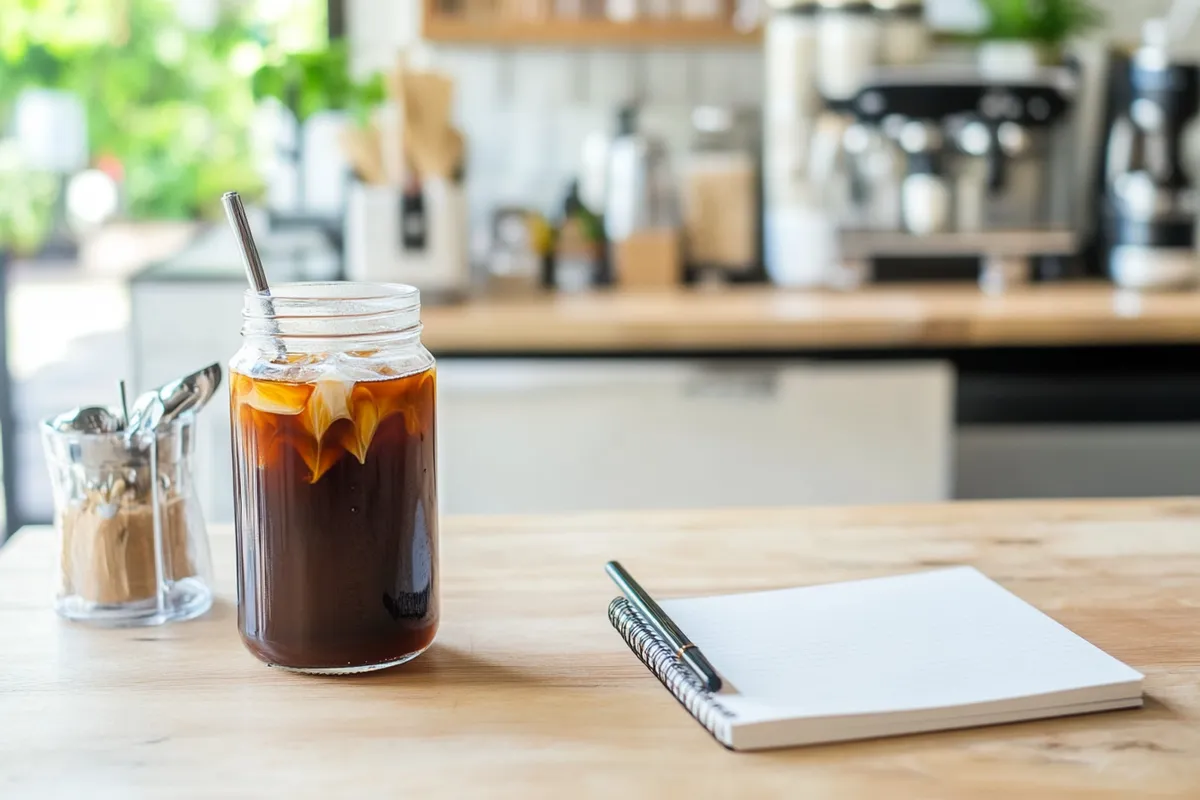
Can you make cold brew with any decaf coffee?
Yes, you can use any decaf coffee to make it, but the results may vary depending on the quality and roast of the beans. For the best flavor, choose decaf beans specifically labeled as suitable for cold brew or low-acidity. Medium and dark roasts often yield the richest, smoothest results. If you’re wondering, “Is there a cold brew decaf coffee?” the answer is a resounding yes—there are plenty of decaf beans designed for this brewing method.
Does cold brew decaf coffee taste different from regular cold brew?
Cold brew decaf coffee has a flavor profile that’s nearly identical to regular cold brew, thanks to the brewing process that emphasizes natural sweetness and smoothness. While decaf coffee may lack a touch of the boldness found in its caffeinated counterpart, high-quality decaf beans ensure a delicious and satisfying cup. Plus, the absence of caffeine means you can enjoy it anytime without the jitters.
How much caffeine is in cold brew decaf coffee?
Although decaf coffee is primarily caffeine-free, it still contains trace amounts of caffeine—usually around 2–5 milligrams per serving. In comparison, a regular cold brew can have over 100 milligrams per cup. If your goal is to cut out caffeine completely, decaf cold brew is an excellent choice for a refreshing drink with minimal caffeine content.
Where can I buy pre-made cold brew decaf coffee?
It is widely available at specialty coffee shops, grocery stores, and online retailers. Popular brands like Stumptown and Trader Joe’s offer ready-to-drink options that cater to decaf enthusiasts. Alternatively, you can make your own at home for a fresher, more customizable experience.
What’s the shelf life of homemade cold brew decaf coffee?
When stored in an airtight container in the fridge, homemade cold brew decaf coffee concentrate can stay fresh for up to two weeks. To keep it tasting its best, avoid exposing it to air or high temperatures, and give it a gentle shake before serving.
Can you get decaf cold brew?
Absolutely! Decaf cold brew is widely available, both as pre-made beverages and as an easy-to-make option at home. Many coffee brands and retailers, including popular chains, have embraced the growing demand for cold brew decaf coffee. With a smooth taste and no caffeine jitters, it’s perfect for anyone who loves the flavor of cold brew but wants to skip the caffeine.
Does Starbucks have a decaf cold brew?
While Starbucks doesn’t currently offer a pre-made decaf cold brew on their menu, you can still enjoy a similar experience. You can request an iced decaf Americano or a cold drink made with decaf espresso, which provides a comparable flavor profile to cold brew. Alternatively, consider crafting your own Starbucks-inspired decaf cold brew at home!
Can you get decaf cold coffee?
Yes, you can find decaf cold coffee in many forms, including cold brew, iced coffee, and specialty beverages. Some popular brands even sell bottled decaf cold brews at grocery stores. If you’re at a coffee shop, you can ask for an iced drink made with decaf espresso or brewed coffee.
Can you get decaf cold brew at Dunkin’?
Dunkin’ doesn’t currently offer a decaf cold brew, but you can enjoy a decaf iced coffee instead. Their decaf iced coffee is made with brewed decaf coffee, served chilled over ice. It’s a refreshing alternative for those looking to enjoy Dunkin’s signature flavors without the caffeine.
What’s the shelf life of homemade decaf cold brew?
Homemade decaf cold brew can be stored in an airtight container in the refrigerator for up to two weeks. To keep it tasting fresh, make sure the container is sealed tightly and shake it before serving to redistribute any settled flavors.
Conclusion
If you’ve been asking yourself, “Is there a cold brew decaf coffee?” you now know the answer is a definitive yes. From the smoothness and versatility of cold brew to the wide variety of decaf options available, this caffeine-free delight is perfect for anyone seeking a flavorful coffee experience without the buzz.
Making your own decaf cold brew at home is simple and rewarding. With the right beans and a little patience, you can craft a drink that’s as satisfying as it is refreshing. Whether you choose to enjoy it plain, with milk, or as part of a creative coffee concoction, this coffee offers endless possibilities.
So, why wait? Start exploring the world of cold brew decaf coffee today and savor the rich, mellow flavors that make it so special. Cheers to enjoying coffee on your own terms—anytime, anywhere!

